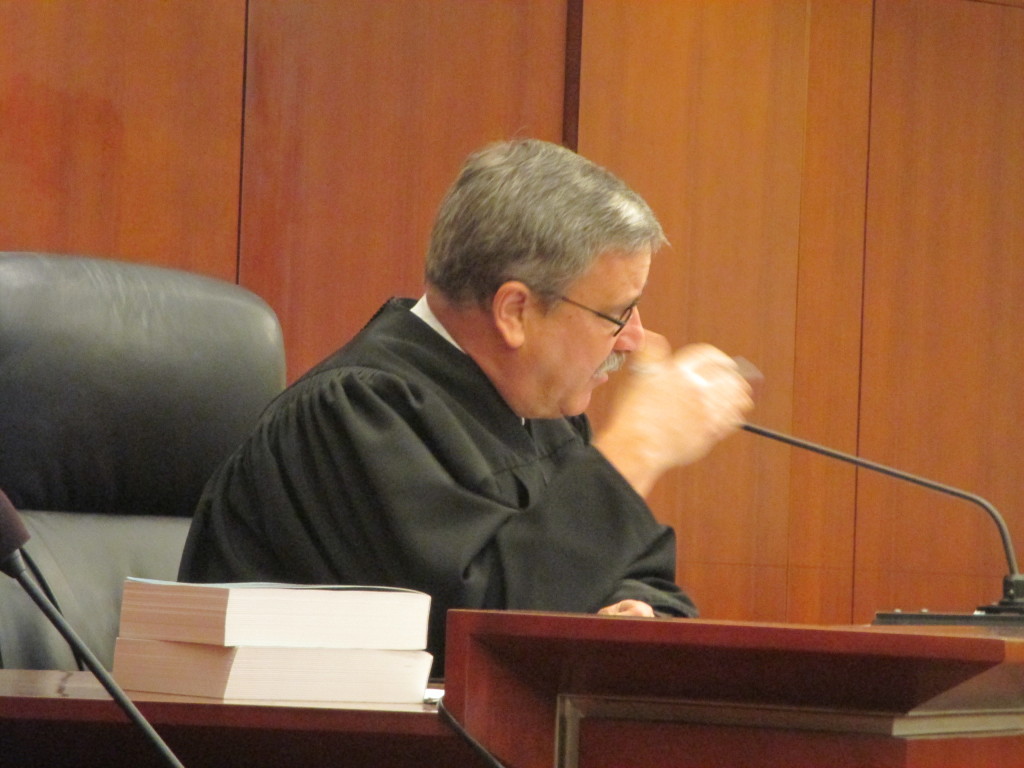
By Tim Redmond
SEPTEMBER 22, 2014 – I sat through the entire morning of oral arguments in the City College case, and I walked out thinking: Nobody’s going to win. Both sides wanted summary adjudication; Judge Curtis Karnow wasn’t buying either claim. This case, I suspected, was going to trial.
And, indeed, Karnow’s ruling, which came down Friday, makes that very clear. The case will move forward, and go to trial in Karnow’s courtroom Oct. 27.
City Attorney Dennis Herrera had the most to lose: The Accrediting Commission for Junior and Community Colleges wanted the entire case thrown out on the grounds that the agency isn’t subject to the state’s Unfair Practices Act because it’s not a business. Lame argument, but if Karnow bought it, the case would have been over.
Not surprisingly, he didn’t. The ruling states very clearly that the law under which Herrera sued applies to the ACCJC – a cause for celebration in the City Attorney’s Office.
“I’m grateful for a decision that should help disabuse the accreditors of the arrogant notion that their violations are somehow beyond the reach of California law,” Herrera said in a press release. “Lack of accountability has been a consistent theme in this accrediting commission’s conduct.”
The judge went a step further: He agreed with Herrera that the makeup of the team that evaluated City College in 2013 violated federal standards when it included only a single academic representative. That means at least one basic issue – the unfairness of the evaluation – has been decided before the trial starts.
And along the way, Karnow rejected every single claim of the ACCJC.
Help us save local journalism!
Every tax-deductible donation helps us grow to cover the issues that mean the most to our community. Become a 48 Hills Hero and support the only daily progressive news source in the Bay Area.
The judge declined to rule in advance of trial that the ACCJC treated City College differently than other accreditation applicants; that’s an issue for the trial. I look forward to seeing the agency try to defend its position, since the only logical argument would be that ACCJC decisions are already so random and unsupported by facts that City College fared no worse than anyone else. Good luck with that.
The ruling made sense given Karnow’s reputation as a no-nonsense, by-the-book jurist. He presented his findings in plain English, so that non-lawyers could understand what he was talking about, and he offered plain, brief descriptions of his rulings.
In what could be a positive sign for Herrera’s team, Karnow rejected pretty much every attempt by the ACCJC to limit or dismiss evidence that the city attorney has introduced.
He had little patience for the ACCJC’s argument that, as an established accrediting agency chartered under federal law, it is immune from being sued for its actions. “The Commission isn’t being sued for performing evaluations; it’s being sued for, e.g, having conflicts of interest and violating the College’s due process rights,” he noted. “No law allows it to do that.”
The ACCJC also argued that, as long as its final decision had some reasonable basis in fact, it couldn’t be legally challenged. Again: No. “The Commission has no authority to the effect that all challenges to the fairness of its process are necessarily defeated by the merit of its ultimate decision.”
There are many, many factual issues still pending here. Once the first issue – is the ACCJC a business for the purposes of law – was decided in Herrera’s favor, I don’t think there was much of a chance that any of the other questions were going to result in summary judgment that prevented a trial.
And while I’m sure Herrera and City College advocates would have been happier if the judge had simply ruled in their favor, there are advantages to a trial – the biggest being that the public will have the ability to see how the ACCJC works, in all of its ugliness. The key players will have to testify under oaths. The facts will all come out.
And in the end, the accrediting agency may wind up not only losing this case, but losing its charter.




